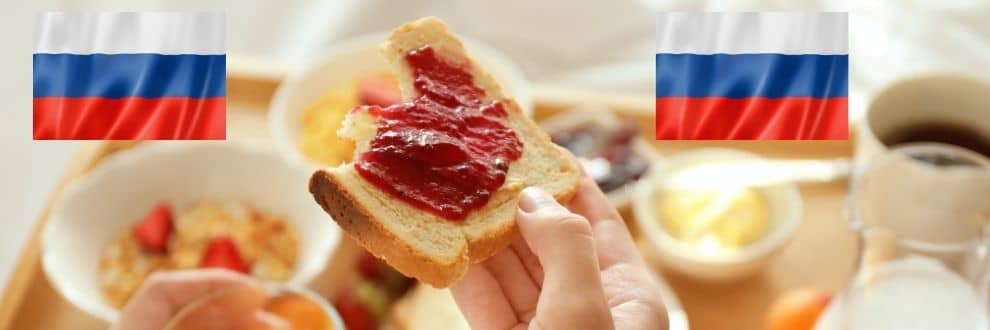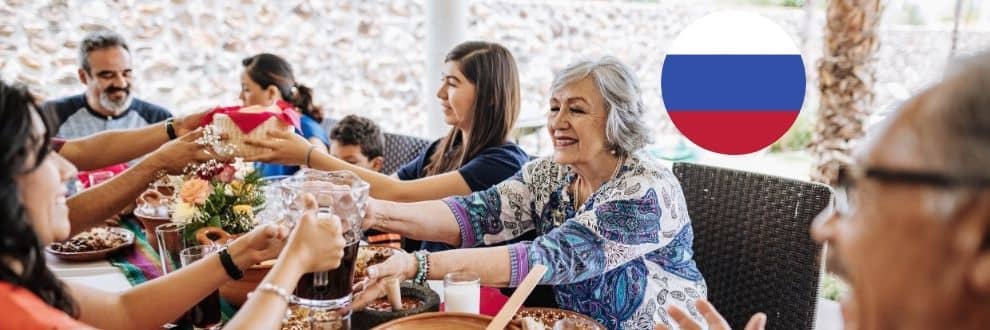Привет, друзья!
Whether it’s breakfast, lunch, or dinner, understanding a few key Russian verbs makes navigating mealtimes a breeze.
In this blog post, we’ll delve into the heart of Russian dining culture by exploring three indispensable Russian verbs:
- завтракать = to have breakfast
- обедать = to have lunch
- ужинать = to have dinner
These verbs really help us to express our eating process.
Let’s embark on this flavorful exploration!
To Have Breakfast (Завтракать) in Russian
Завтракать (zavtrakat’) is the Russian verb used to describe the act of having breakfast.
This verb is derived from the noun “завтрак” (zavtrak), which means breakfast.
Russians take their breakfast seriously, and it often includes a variety of dishes like kasha (porridge), blini (pancakes), tvorog (cottage cheese), eggs, and more.
(This weekend we’re having breakfast at a restaurant.)
To Have Lunch (Обедать) in Russian
Обедать (obedat’) is the Russian verb for having lunch.
The noun “обед” (obed) refers to lunch itself.
Russian lunches often consist of soup, meat or fish dishes, salads, and a side of bread.
(I don’t have lunch to keep the weight off.)
To Have Dinner (Ужинать) in Russian
The verb ужинать (uzhinat’) is used to describe the act of having dinner in Russian.
“Ужин” (uzhin) is the word for dinner.
Russian dinners are typically more substantial than breakfasts and can include multiple courses such as soups, main dishes, and desserts.
Here are some examples:
(I always have dinner with my family.)
Remember to savor the flavors as you explore the delicious world of Russian cuisine.
We hope you enjoyed our Russian journey.
Don’t miss out on writing Russian sentences about having breakfast, lunch, or dinner.
Bon appétit! (Приятного аппетита!)














Add Comment